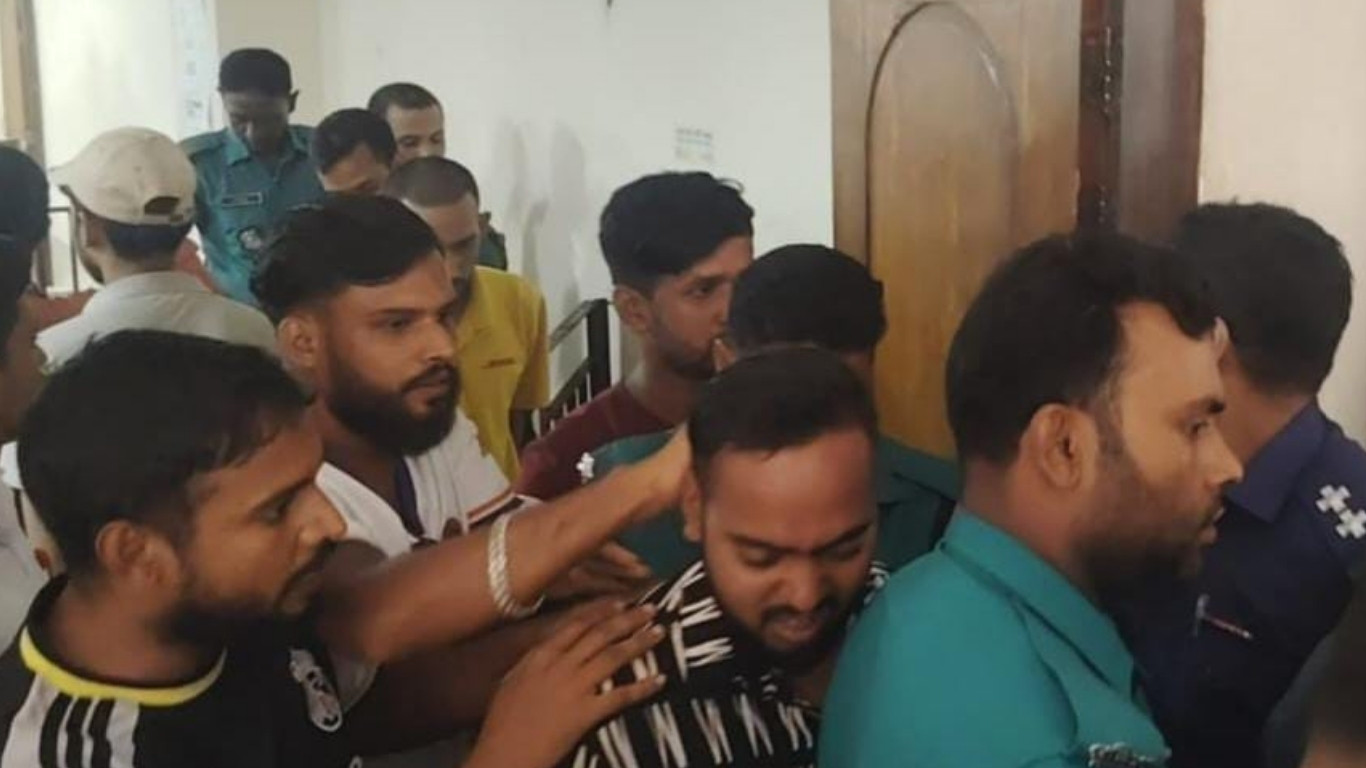Dhaka takes four suspected terrorists into custody, fears among migrants in Kuala Lumpur
Four men accused of being part of a terrorist network in Malaysia have been repatriated and are under arrest in Dhaka, while investigations into the matter continue. The recruiters had infiltrated migrants from Bangladesh, who number about one million in the Southeast Asian country. The incident risks compromising their job opportunities.
Dhaka (AsiaNews) – Four Bangladeshi citizens expelled from Malaysia after being accused of being part of a terrorist network appeared yesterday before the Dhaka Metropolitan Court, where Judge Minhazur Rahman ordered four days of preventive detention for each of them to allow further questioning by the Anti-Terrorism Unit.
The four – Nazrul Islam Sohag, Mohammad Redwanul Islam, Zahed Ahmed and Mahfuz – had been recruited by a group that had infiltrated migrant networks. In recent days, Malaysian authorities had taken into custody 36 Bangladeshi men between the ages of 25 and 35. The incident has also caused concern among migrant workers, who now fear restrictions on entry into Malaysia.
"I have not committed any crime. I was with two suspects, but while they were imprisoned in Malaysia, I was simply repatriated,‘ one of the defendants, Zahed Ahmed, told the court. Defence lawyer Emdadul Haque also rejected all charges: ’These men are migrant workers, not militants. They are remittance fighters and innocent. They have been unjustly harassed."
According to the prosecution representative, Inspector SM Bakhtiar Khaled, ‘their actions have damaged the country's image. The suspicion of militancy abroad casts a shadow over all Bangladeshis working abroad and could jeopardise future employment opportunities.’
Currently, over a million Bangladeshi citizens work in Malaysia. The country is one of the main destinations for migrant labour, a key source of remittances for the national economy. For this very reason, according to several analysts, any incident linked to Islamic extremism is a cause for concern both domestically and internationally.
Shariful Hasan, a migration expert, called for full light to be shed on the matter:
‘We need to understand what happened in Malaysia: who involved them, who financed them, who provoked them. A serious investigation is needed.’ Asif Munir, another analyst in the field, also stressed the importance of cooperation between local and international intelligence services: "The information that led to the arrests in Malaysia must be compared with what our agencies know. It is also essential to check for any previous incidents in Bangladesh."
Meanwhile, the Foreign Ministry in Dhaka has confirmed that the Bangladeshi embassy in Kuala Lumpur is in contact with the Malaysian authorities. In a statement released on 5 July, it said that formal charges had already been brought against five of the 36 citizens recently arrested in Malaysia for alleged links to extremist movements. Investigations into the others are still ongoing.
The Bangladeshi government, the statement said, ‘is closely monitoring the situation and will provide the necessary consular support to the expatriates involved.’
11/08/2017 20:05
04/08/2023 16:43
17/08/2022 11:53







.png)










